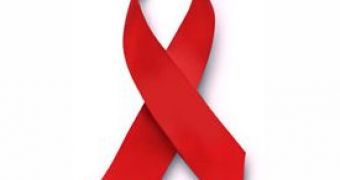An international team of investigators is working on designing and completing the first human trial of a mosaic HIV vaccine candidate and Los Alamos National Laboratory researcher Bette Korber is part of the team.
The scientists are led by Duke University Medical Center under consortium leader Dr. Barton Haynes, director of the Duke Human Vaccine Institute and the Center for HIV/AIDS Vaccine Immunology (CHAVI).
Haynes said the team will use the NYVAC vaccinia vector – derived from the smallpox vaccine, and DNA containing a new set of artificial, computer-designed HIV genes in a Phase-I clinical trial.
This trial will be supported by the Bill & Melinda Gates Foundation and the National Institute of Allergy and Infectious Diseases (NIAID), part of the National Institutes of Health.
The new vaccine is based on a new strategy of fighting the human immunodeficiency virus, by targeting its extensive genetic diversity.
The researchers have already started working on the design of an early phase safety trial that will evaluate mosaic vaccines in humans.
The concept of mosaic vaccine will be tested and might just open the way to a new generation of HIV vaccine candidates.
The difference between mosaic and traditional HIV vaccines is that the latter boosts the immune system to recognize naturally occurring stretches of certain amino acids from the proteins of the virus, while mosaic vaccines include many sets of synthetic, computer-generated sequences of proteins that can stimulate the immune system to respond to a wide variety of circulating HIV strains.
This type of vaccines have been studied in animals and have had positive results in increasing the range of immune responses (the results of these studies can be found in Nature Medicine).
The team that developed the mosaic genes was led by Korber, a senior researcher in Los Alamos National Laboratory's Theoretical Division.
Human trials should be ready to launch by late 2012, according to Haynes.
Korber said that “HIV's diversity is vast, and the mosaic gene design represents a novel vaccine design to directly tackle HIV diversity in human clinical trials.
“Based on computational models, mosaic vaccines were predicted to perform better than natural HIV genes; experimental studies in animals, which directly compared mosaic to natural vaccines, supported that prediction.
“We are excited to test this concept in humans.”
Haynes added that “each member of this consortium is also a member of the Global HIV Vaccine Enterprise, and this collaboration is truly a global effort to make progress on HIV vaccine development.”
This association of scientists includes the best researchers and the most committed organizations of developing an effective vaccine against HIV infection.
Among the participants are The Foundation for the National Institutes of Health, the Fred Hutchinson Cancer Research Center and its NIH-funded HIV Vaccine Trials Network, the IPPOX Foundation in Switzerland, Beth Israel Deaconess Medical Center, Los Alamos National Laboratory, the NIH/NIAID Vaccine Research Center, Duke University and its Center for HIV/AIDS Vaccine Immunology, the Bill & Melinda Gates Foundation and the Division of AIDS of the National Institute of Allergy and Infectious Diseases.
The NYVAC vaccine is provided by Sanofi-Pasteur, a collaborator in the study.

 14 DAY TRIAL //
14 DAY TRIAL //